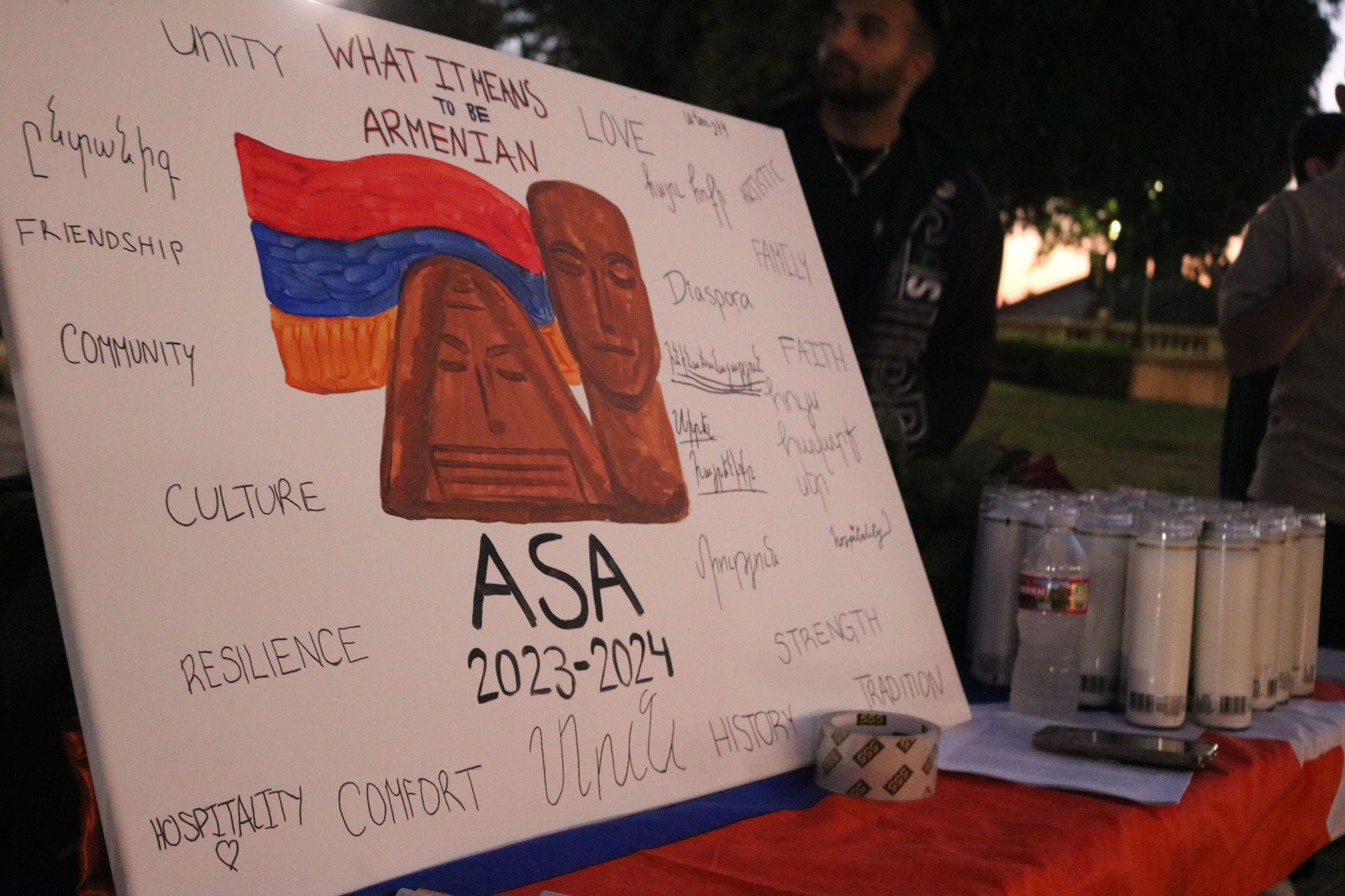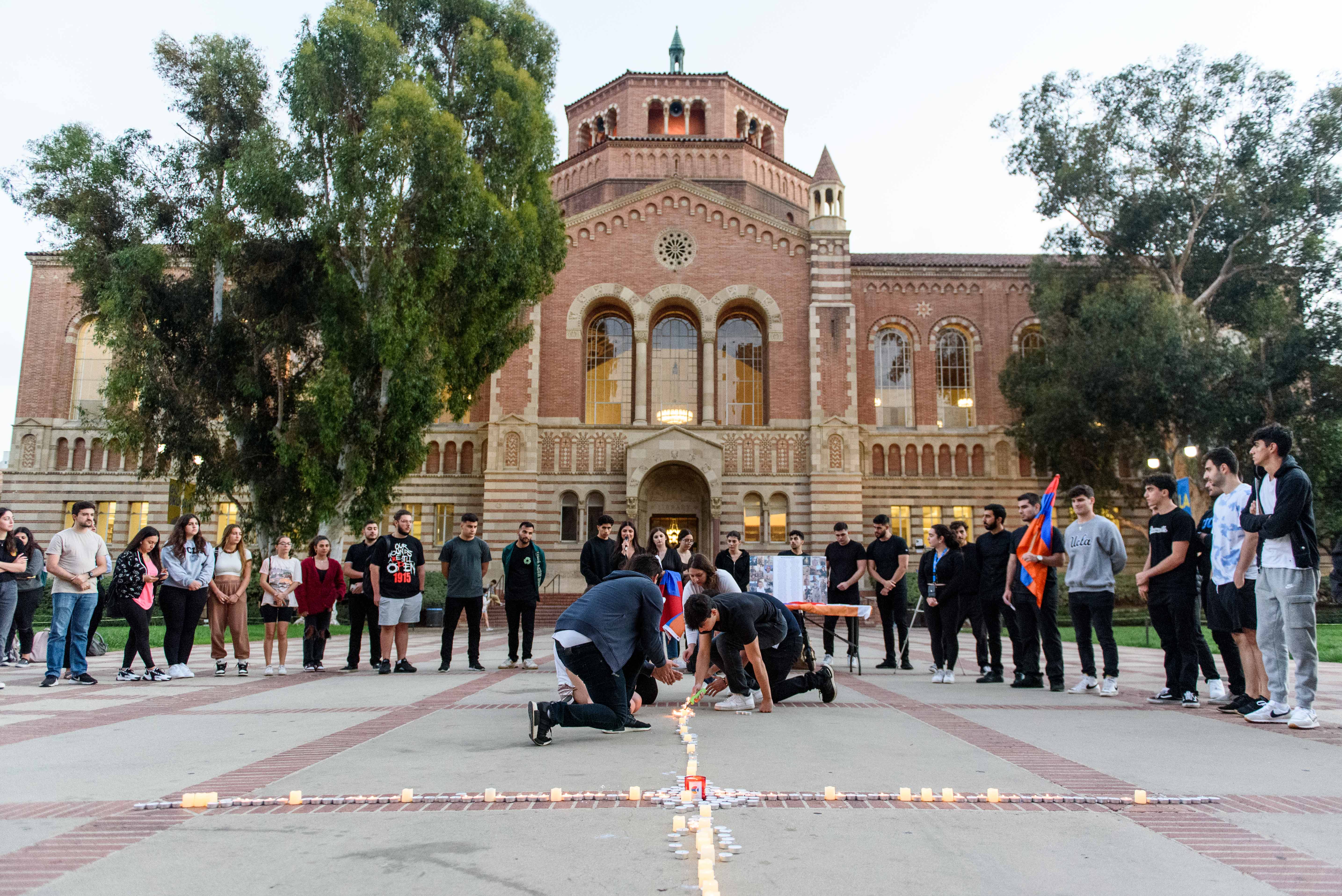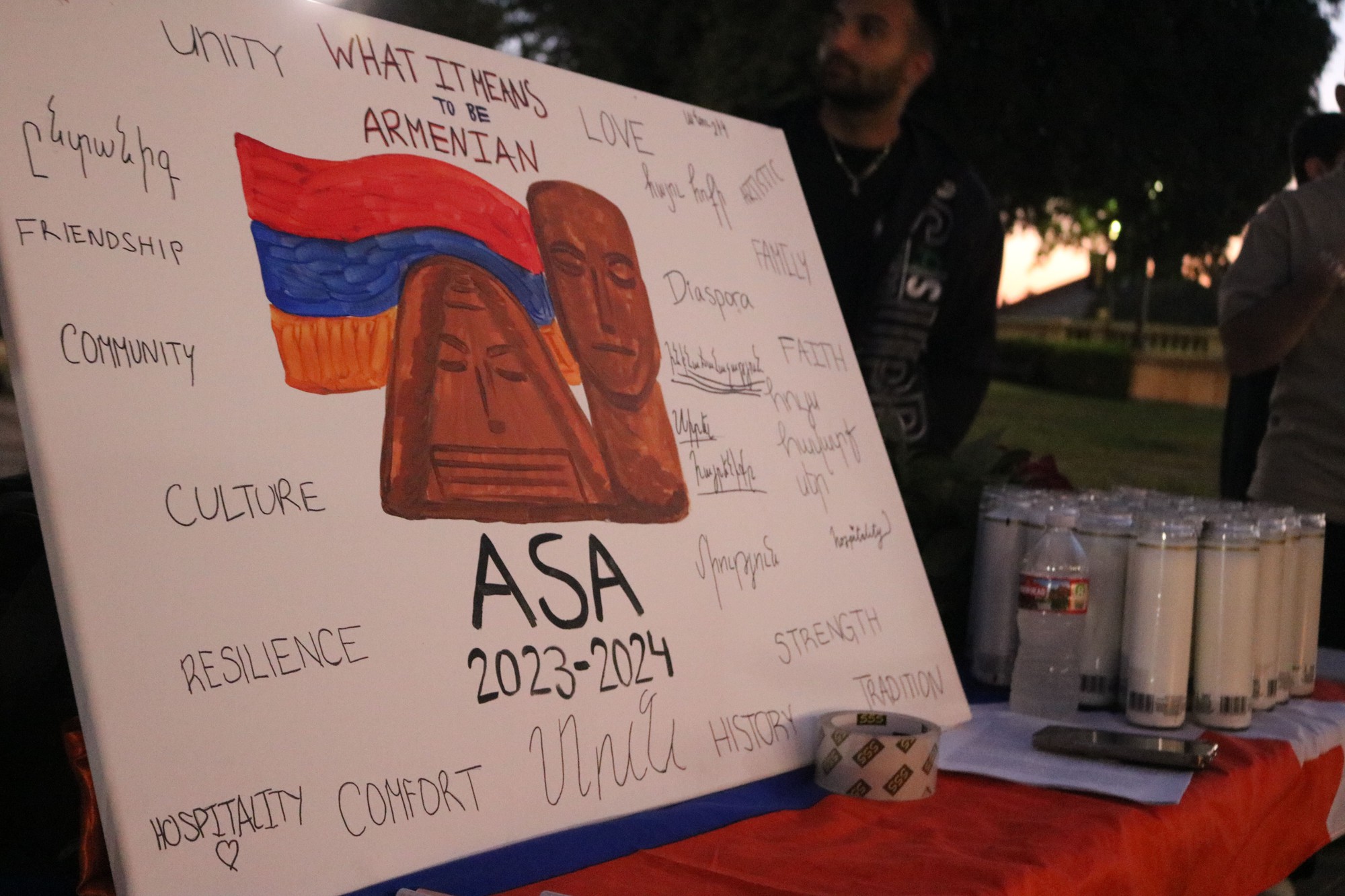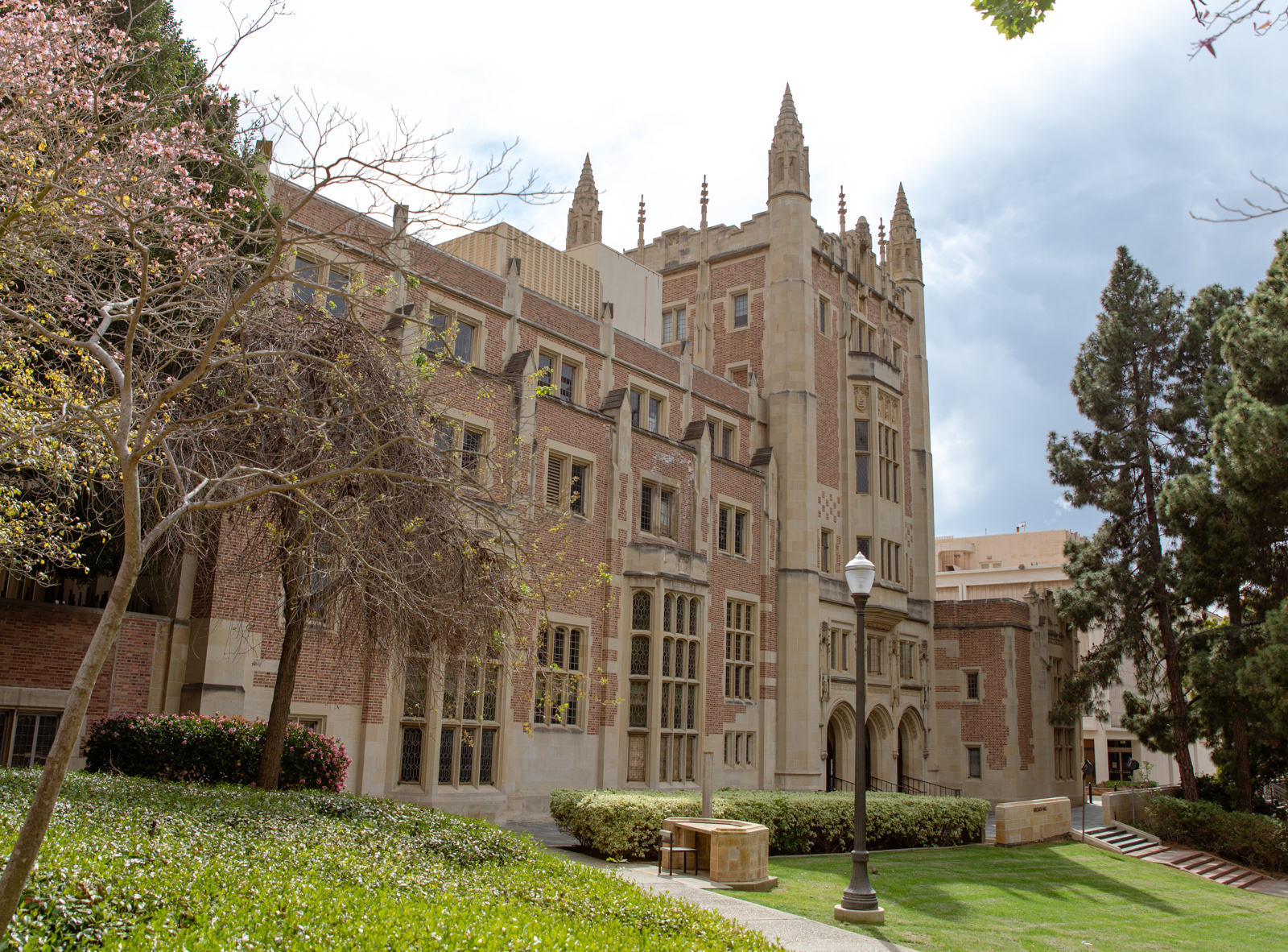USAC passes resolution condemning the ethnic Armenian genocide in Artsakh

A board made by the UCLA Armenian Students’ Association and displayed at a September vigil is pictured. The Undergraduate Students Association Council passed a resolution March 5 condemning the genocide of ethnic Armenians in the Nagorno-Karabakh region. (Photo by Rita Keushkerian, courtesy of Mary Keushkerian)
By Aimee Zhang
March 17, 2024 8:34 p.m.
The Undergraduate Students Association Council unanimously passed a resolution March 5 condemning the genocide of the ethnic Armenians in Artsakh, a region also known as Nagorno-Karabakh.
The resolution also called for UCLA to divest from the Republic of Azerbaijan and the Republic of Turkey – building on last year’s resolution which pledged USAC’s solidarity with Armenians in Artsakh and demanded the university stand with Armenian students.
USAC officers voted on this year’s resolution after Azerbaijan launched an offensive against areas in Artsakh with large populations of ethnic Armenians, leading to the forced displacement of more than 100,000 Armenians, according to the 2024 resolution.
Three Armenian Students’ Association officers – President Mary Keushkerian, External Vice President Dro Hambarchian and Political Affairs Chair Mischa Gureghian Hall – presented this year’s resolution to the council.
The development of the resolution gives a voice to Armenian students and brings awareness to the humanitarian crisis in Artsakh, said Gureghian Hall, who is also a third-year global studies student.
Gureghian Hall added that the resolution also calls for USAC to demand that the UC be transparent in its financial investments and divest from assets linked to Azerbaijan and Turkey.
“The UC investment system is very opaque, very nontransparent, and is essentially impossible for students or even the public at large … to provide that public oversight to ensure that funds aren’t being used to indirectly prop up governments responsible for human rights abuses,” Gureghian Hall said.
Megan Law, USAC’s internal vice president, said she decided to co-sponsor the resolution because she wanted to continue her advocacy with ASA.
“I hope this empowers students, in general, to be able to voice their concerns and how they feel in relation to social justice, (and) what they would like to see UCLA administration doing in the future,” said Law, a third-year political science student.
Law said USAC’s next steps will be to email the resolution to UCLA officials including Chancellor Gene Block and vice chancellors, as well as participate in meetings with UCLA administrators and ASA to advocate for the resolution’s contents. She added that USAC offices will continue to co-host events with ASA.
Gureghian Hall said some USAC collaborations have included cultural events that highlight different aspects of Armenian culture. He added that one example was their International Women’s Day event, where the ASA partnered with USAC to hand out roses and snacks in front of Kerckhoff Hall. The event also featured a table of cultural Armenian foods where students, Armenian or not, could take anything they wanted, he said.
“This is an opportunity for non-Armenian students to have – very literally – a taste of Armenian culture, Gureghian Hall said. “Just engaging with Armenian culture … is in itself an act of solidarity, in itself an act of recognition, which goes a long way for all Armenians.”
Keushkerian, a fourth-year psychobiology student, said the resolution’s passage has already made her feel safer on campus. She said last year, the council increased its effort to improve solidarity among other student groups on campus, introducing an Armenian transfer day – sponsored by the Office of the Transfer Student Representative – and plans to increase Armenian students’ access to study abroad programs and similar institutional events.
Keushkerian said it’s important for students to stand in solidarity with the Armenian population by recognizing and learning more about Armenian history and culture.
“I really hope that, if there are any protests going on or cultural events, that they show up and be there physically, but also learn about us (Armenians) so we don’t get forgotten,” Keushkerian said.






